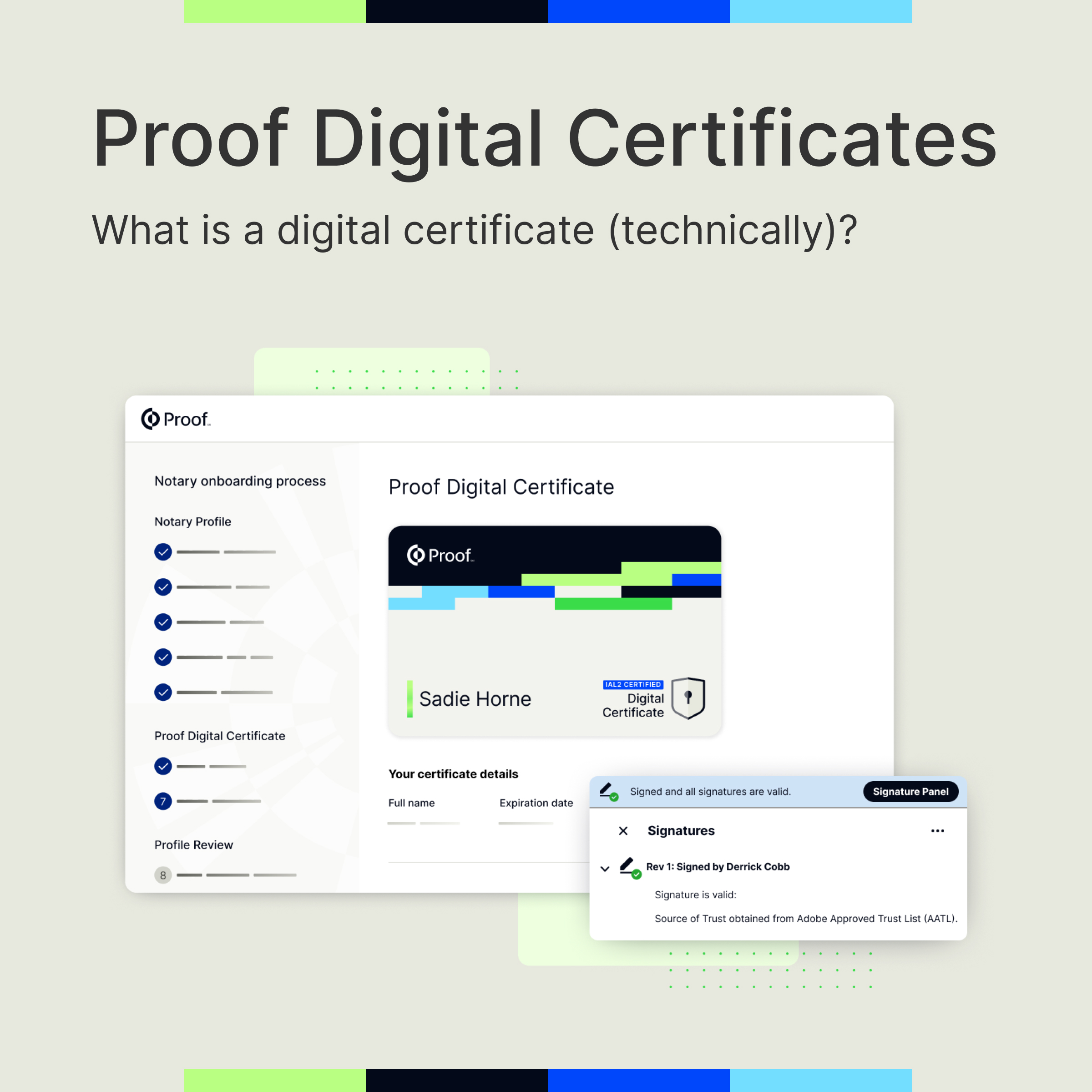8 Forms Colleges Need To Notarize And Why Remote Online Notarization Works Best


Colleges and universities are complex ecosystems, with various departments - housing, enrollment, employment, financial, and more - that require identities to be verified and documents to be notarized. Colleges are also filled with a transient population of digital natives: college students who are used to doing everything online. Remote online notarization (RON) offers a convenient, efficient and secure solution to ensure that these important transactions and documents are valid and trustworthy.
With RON, students (or their remote parents) can participate in these transactions in a way that works with their lifestyle. Wherever they are physically located, whatever time of day - RON meets students where they are using technology that they are comfortable with (and, frankly, are more likely to use in a timely manner). Proof provides that technology and helps universities keep all of those departments on track.
Which types of transactions on a college campus might require RON?
- Leases. College students live in all sorts of housing arrangements - dorms, apartments, on-campus, off-campus - and they have to sign leases. RON allows them to execute those lease agreements with remote notarization, removing what can be a logistical hurdle if the student isn’t even on campus when they are signing the lease.
- Enrollment. Universities frequently need to verify enrollment and fulfill transcript requests, two tasks that often require notarization. It is much easier for a university to notarize these documents online, rather than using an in-person notary.
- Employment. Colleges employ a lot of people, including students and staff. Verifying identity for employment applications or notarizing employment agreements using RON is simpler, faster and more secure.
- Financial Aid. Financial aid applications often require notarization to prove identity, income and other data required by colleges to determine aid awards. RON makes the whole financial aid application process much easier on the student. Same with students applying for loans or grants - RON is a much better way for them to get their information submitted.
- Residency. Many schools offer lower tuition rates for in-state students. To verify residency for tuition purposes, students can use online notarization to help ease that process.
- Development. The development office at a university is charged with processing large donations. They often have to obtain Proof of Funds documents to verify that the donor can actually afford the donation - and those documents require notarization. RON makes that process painless.
- Study Abroad. Students leaving the university to study abroad are often asked for notarized documents by their host university or country. RON is the perfect solution for a harried student trying to line up the details before they go abroad.
- Medical forms. Students often need to sign medical power of attorney documents that designate a parent to make medical decisions for their student if the student is incapacitated. These documents need to be notarized. Believe it or not the university can’t call a parent and ask what their kid would want in a medical emergency if there is no power of attorney form completed.
- Other student transactions. Students often need to grant a power of attorney to their parents or open a bank account in their new city or town. To do so, they need witnesses and notarization. RON is the perfect solution for these important but time-consuming tasks.
With the wide variety of transactions that take place every day on college campuses, in myriad contexts, RON provides a clear solution to help students and administrators execute safe and secure transactions. To learn more about how Proof can help colleges and students access RON efficiently and easily, click here.














































































.jpg)





.png)

.png)







.png)
















.jpg)












.png)

.jpg)

